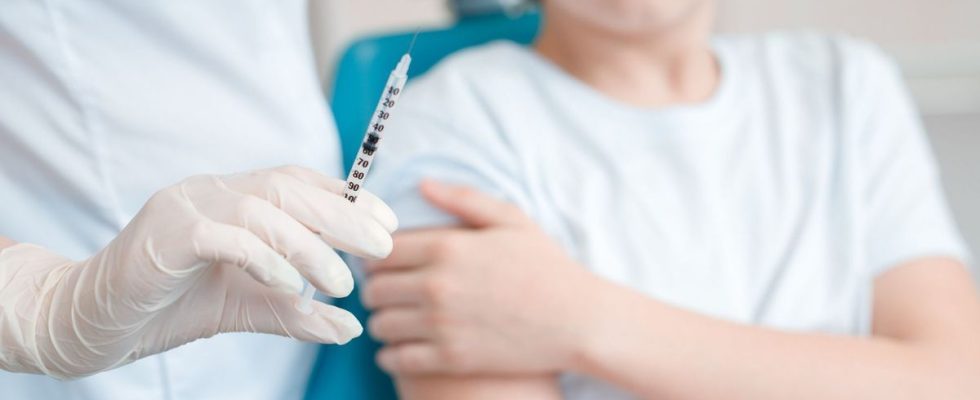Published on
Updated
Reading 3 mins.
in collaboration with
Dr Gérald Kierzek (Medical Director of Doctissimo)
The vaccination campaign against the papillomavirus of adolescents will begin in colleges for 5th graders. So should you have your child vaccinated or not? Elements of response with Dr Gérald Kierzek, emergency doctor and medical director of Doctissimo.
For this new school year, vaccination against the papillomavirus will be offered to 5th graders and a communication campaign accompanies this measure, because of course, this vaccination is not compulsory but it is proposed and must receive the agreement of the parents.
From the beginning of next October, it will even be possible for these students to receive the injection, in establishments in certain regions. Stated objective of the government: to increase the vaccination coverage of adolescents from 40 to 80% by 2030. Today, it is around 41.5% for young girls and 8.5% for boys .
Who is affected by this vaccination?
Developed with the aim of “eradicating” certain pathologies caused by the human papillomavirus, and in particular certain cancers, anti-HPV vaccination is recommended by the High Authority for Health (HAS) for girls and boys aged 11 years. at 14, before the start of their sexual life. A first injection must be followed by a booster performed between six months and a year later.
For older adolescents, vaccination remains possible until the age of 19, with two boosters and even until the age of 26 for men who have sex with men or for immunocompromised people .
What pathologies does it prevent?
Remember that most of the time, papillomavirus infections are ephemeral and have no consequences on health. However, among the more than 200 different viruses that are classified in this family, some can be the cause of anogenital warts and others, those said to be “high risk” can cause precancerous lesions and cancers.
In total, each year in France, these viruses cause more than 6,000 new cases of cancer in men and women, with around 3,000 cancers of the cervix, 1,700 ENT cancers, 1,500 of the anus, 300 of the vulva. , vagina and penis. And according to data from the HAS, the vaccine against the human papillomavirus would make it possible to prevent genital infections which can cause up to 90% of cancers of the cervix, but also other types of cancers, concerning the ways genitals and the ENT sphere.
The point of view of Dr Gérald Kierzek, emergency doctor and medical director of Doctissimo
To help parents and children decide, Doctissimo interviewed Dr Gérald Kierzek, emergency doctor and medical director of Doctissimo. So should you, yes or no, get vaccinated or vaccinate your child against HPV?
“Let us remember first of all that 80% of men and women are infected with HPV and there are about 200 different types and that most are benign. The vaccine will be effective against around a dozen HPV viruses, which are the most dangerous, those known as “oncongenes”. The vaccine will therefore prevent the contamination of the youngest by these viruses. The interest is to achieve it as early as possible, between 11 and 14 years old, before the start of sexual relations.
The doctor also recalls that the prevention of some of these cancers also involves screening.
“This communication device in the establishments will allow children and parents to discuss it among themselves, but also with the health teams present in the establishments. Finally, I would like to emphasize that if the vaccine provides protection, it does not replace screening acts, such as the uterine smear for girls” concludes Dr Gérald Kierzek.
